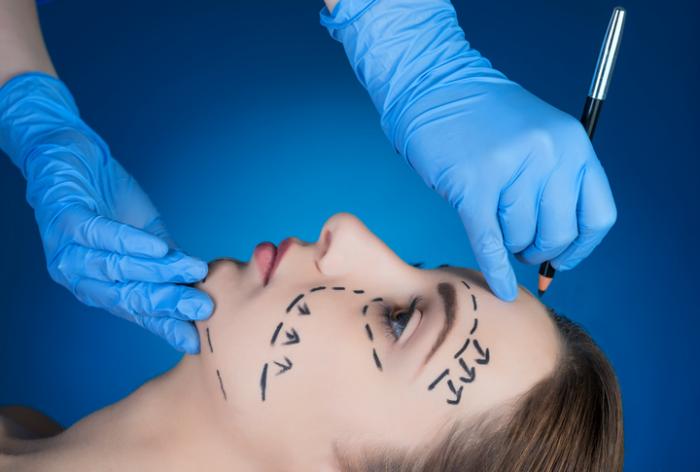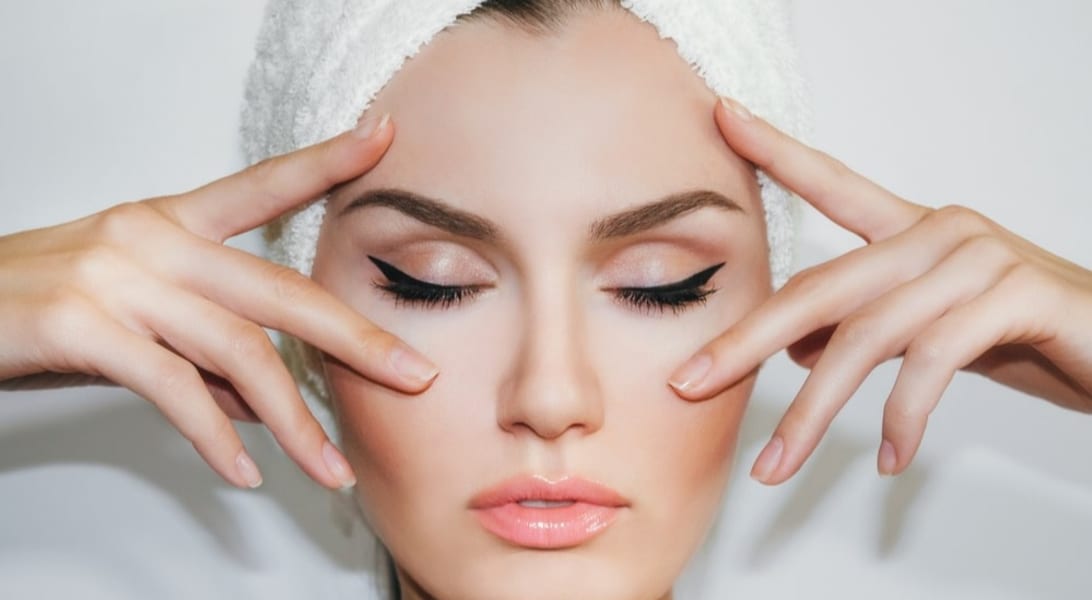
Recent world events have many of us looking at our own faces on a screen for up to 8 hours a day. If you were a bit surprised at your own image and want to do something about it, there are many cosmetic procedures that can help. Depending on your age and health, you may be an excellent candidate for a facelift.
SMAS, or Superficial Musculoaponeurotic System
The SMAS facelift is the gold standard for surgical facelift procedures to target sagging skin from beside your eyes all the way down to your neck. It is important to note that the correction around the eyes during this procedure is minimal; while the tissue at the outer edges of your eyes will be lifted and firmed, sagging brows will not be corrected by this procedure unless you opt for a high SMAS facelift. The forehead is not addressed during the SMAS procedure.
The skin and underlying superficial tissue of the cheek and jaw will be lifted and firmed during this procedure. If you have been considering a neck lift, a low or cheek-center SMAS facelift may be enough. Because recovery from a facelift can be time-consuming and uncomfortable, it’s a good idea to give your body time to recover before you address any brow or hairline procedures.
Subperiosteal Lift
The Subperiosteal facelift is done endoscopically. Unlike the deep plane facelift, this treatment works under the skin by firming up the tissue of your face where tissue meets the bone. While many traditional cosmetic procedures rely on snugger skin to hold up underlying tissues, this treatment firms the underlying tissue of the cheeks.
Many who undergo a mini or subperiosteal are very happy with the results on the jawline but later choose to undergo an eyelift or use dermal fillers and Botox along the forehead and brows. You may also choose to do a feather lift along the brow lines to open your gaze and look better rested. If you are concerned about sagging cheeks or deepening folds around your nose, this may be an ideal treatment for your needs.
Deep Plane Facelift

In the early days of facelifts, the deep plane facelift was the standard. While you can still get a deep plane facelift, this technique includes cutting the skin around the face at the hairline and jaw and lifting the skin to resettle and trim away the excess. Because this procedure requires the lifting of the skin, your recovery will be longer, and your risk of infection will be higher.
Before any surgical procedure, it’s critical that you discuss any prescription medications you are currently on with your physician and surgical team. You may have to back off some medications or switch to an alternative product before your surgery to lower your risk of bleeds and bruising.
Mini Facelift
A mini facelift will target drooping skin across your cheeks and along your jaw. Unlike a deep plane facelift, there is no cutting at the hairline. If you’re interested in surgery that will improve your appearance without making a radical change, this procedure can be a good start.
Experts in the plastic surgery industry remind us that the goal is to look like the best version of yourself. Board Certified physician and author Dr Jacono promotes and teaches with the goal of providing undetectable procedures.
ThreadLift
The thread or feather lift does require injections but doesn’t require cutting. Instead, polypropylene sutures with self-anchoring barbs are injected into the skin to pull up sagging tissue and encourage collagen production. Undergoing a thread lift will require you to be numbed but may be done as an outpatient procedure and will require little recovery time.
Prior to this or any cosmetic procedure, it’s a good idea to track your diet and hydration. A diet rich in raw produce, particularly fresh greens and berries, can go a long way to helping you shed the toxins that damage your tissues over time.
Feeling confident in your appearance can do wonders for your spirits and even lower your blood pressure. If new wrinkles or sagging skin are reducing your joy in life, it’s time to do something about it. Start small; a deep hydrafacial or exfoliation treatment can freshen your skin and help you gain awareness of what such treatments require of you. As you learn more, carefully review your diet and activities to make sure that you are building up your health to make recovery easier.
